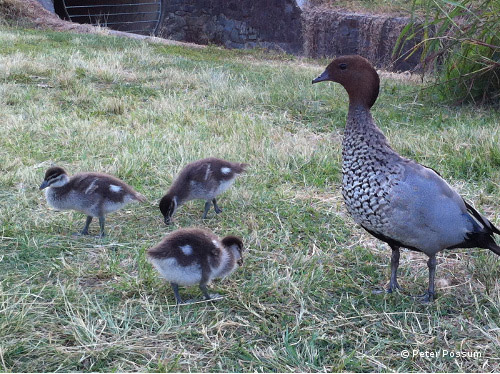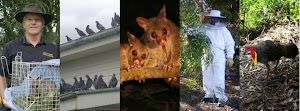As the weather warms up we start to see a number of native animals and pests become more active around our homes. Here’s a quick run through of what to expect this spring.
Problem birds such as starlings, Indian Mynas, sparrows and pigeons quite often choose to nest in roof cavities. While they create a major problem in terms of noise when roosting, they also leave behind a nearly invisible problem once the fledglings leave the nest – bird lice or bird mites.

Spring sees European Honey Bees sending colonies off in search of new spaces for their rapidly expanding hives. Swarms of bees may descend on brick wall cavities, timber houses or hollow trees. If bees swarm in a backyard, keep all children and pets indoors and away from the swarm until the bees are removed.
Native bees may also form colonies in cavity brick walls, electricity meter boxes, tree trunks and water meter pits. In southeast Queensland, the most common variety of native bee (Trigona carbonaria) has no sting. Native bees need careful handling to safely remove them from a property. Our bee removal service in Brisbane offers a fast, safe service that will rid your property of this potential danger.
Australian Brush-turkey Scrub turkeys are large birds that build huge nest mounds up to 5m across. Although they can mound and breed at any time of the year, the peak breeding season is from September to December. Eggs take about 50 days to hatch.
Males are very territorial and protect their mounds, spending many hours raking together mulch, twigs and leaves to create their mound, often destroying gardens in less than a day in the process. The same nesting site is generally used year after year.
Scrub turkeys are protected but can be relocated by a licensed permit holder. They need to be removed as soon as mounding is underway. Our scrub turkey removal service will effectively trap and relocate the offending brush turkeys in compliance with the law.







